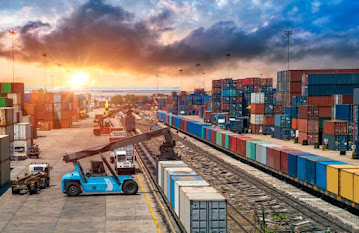Enhancing Cargo Logistics: The Integration of AI and Machine Learning in Cargo Cloud Solutions
In today’s fast-paced world, the logistics industry is continually evolving to meet the demands of global trade. With the emergence of advanced technologies, such as Artificial Intelligence (AI) and Machine Learning (ML), traditional cargo management processes are undergoing a profound transformation. Revenue Technology Services (RTS), a leading provider of innovative solutions for the transportation industry, has been at the forefront of integrating AI and ML into cargo cloud solutions, revolutionizing how goods are transported and managed.
AI and ML technologies have the potential to streamline operations, optimize routes, enhance forecasting accuracy, and improve overall efficiency in cargo logistics. By harnessing the power of AI, RTS has developed cutting-edge solutions that empower businesses to make data-driven decisions, automate repetitive tasks, and adapt to dynamic market conditions.
One of the primary applications of AI and ML in cargo cloud solutions is predictive analytics. By analyzing historical data, AI algorithms can forecast demand patterns, anticipate supply chain disruptions, and optimize inventory levels. This predictive capability enables companies to proactively address potential issues, minimize delays, and ensure timely delivery of goods.
Moreover, AI-powered route optimization algorithms have significantly improved transportation efficiency and reduced costs. By considering factors such as traffic conditions, weather forecasts, and delivery schedules, these algorithms can determine the most optimal routes for cargo shipments, minimizing fuel consumption and reducing carbon emissions.
Furthermore, AI-driven predictive maintenance has emerged as a game-changer in the logistics industry. By continuously monitoring equipment sensors and analyzing performance data, AI algorithms can predict potential failures before they occur, allowing companies to schedule maintenance proactively and avoid costly downtime.
In addition to predictive analytics and route optimization, AI and ML technologies are revolutionizing the customer experience in cargo logistics. Through advanced chatbots and virtual assistants, companies can provide real-time shipment tracking, address customer inquiries, and resolve issues promptly. This enhanced level of transparency and communication fosters customer trust and loyalty, ultimately driving business growth.
RTS’s cargo cloud solutions leverage AI and ML to provide a comprehensive suite of tools for end-to-end supply chain management. From warehouse optimization to last-mile delivery, RTS’s innovative platform empowers businesses to optimize every aspect of their logistics operations, resulting in cost savings, operational efficiency, and competitive advantage in the market.
However, despite the numerous benefits of AI and ML integration in cargo cloud solutions, challenges such as data security, algorithm bias, and regulatory compliance must be addressed. RTS is committed to addressing these challenges by implementing robust data encryption protocols, conducting regular algorithm audits, and ensuring compliance with industry standards and regulations.
In conclusion, the integration of AI and ML in cargo cloud solutions represents a paradigm shift in the logistics industry. By leveraging predictive analytics, route optimization, predictive maintenance, and enhanced customer experiences, companies can unlock new levels of efficiency, agility, and competitiveness. RTS continues to lead the charge in harnessing the power of AI and ML to drive innovation and transformation in cargo logistics, ultimately shaping the future of global trade.




.jpg)
Comments
Post a Comment